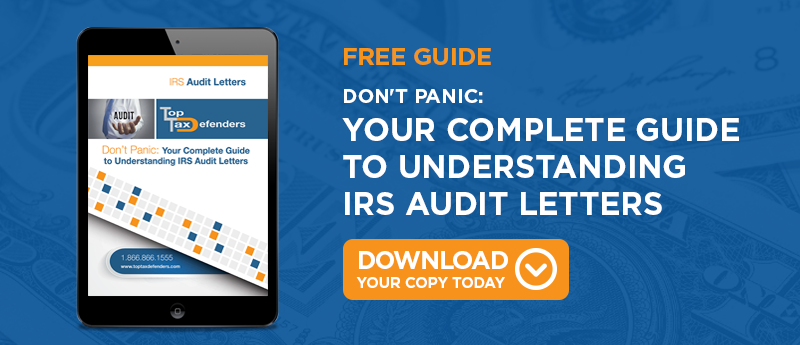
The IRS sends out Audit Letter 915 to taxpayers who have been audited by the agency recently. What is Audit Letter 915? Do you have to do anything after you receive it? How can you reduce the risk of receiving the audit form in the first place?
What's Included in Audit Letter 915
Audit Letter 915 is an IRS notice that states the adjustments in the amount of tax an individual owes to the agency. In general, this letter is issued following a completed IRS audit. Even though the majority of audits are considered to be negative, it is possible to have good news, especially if the IRS decides to reduce your tax liability. If this happens, your copy of Audit Letter 915 will inform of the reduction in the amount of tax you owe.
If your copy of Audit Letter 915 includes a notice of a tax liability increase, though, it can be difficult to feel positively about it. One thing that can help is knowing that the IRS does allow taxpayers to make their tax payments using installment plans or credit cards. This means that you won't necessarily have to come up with the additional sum right away.
What to Do When You Receive Audit Letter 915
As soon as you receive Audit Letter 915, read the entire letter thoroughly to be sure that you understand the adjustments the IRS has made to your account. When you've read the whole letter, you should do one of two things: either sign the agreement form and return it or file a tax appeal with the IRS.
The agreement form states that you agree with the recalculation and that you assume responsibility for any increase or accept responsibility for any decrease in tax liability. Once you sign this form and send it in, you forfeit any right to an appeal. When you file an appeal, though, you are requesting that the agency take a second look at your account, because you do not believe that the correct ruling was made.
It's important to note that IRS appeals are not designed to be used as a means of protesting the tax due. They are intended for taxpayers who believe they have a legitimate case for why their tax liability should be recalculated. If you decide to appeal, you may wish to hire an experienced Enrolled Agent or tax attorney to examine your records first to make sure you have a good case.
How to Reduce the Risk of an Audit
Of course, if you never get audited, you'll never have to receive Audit Letter 915 at all. You can reduce your risk of an IRS audit by making certain that you qualify for the tax deductions and tax credits you claim. Only take deductions that you can substantiate with receipts or credit card records. Use a reputable tax professional to prepare your return. And, make sure that you submit your tax return by the filing deadline every year.
When you get Audit Letter 915 in the mail, don't assume that it's bad news. Read the letter completely and then check with a qualified tax expert who can help you decide how to respond to the notice.





